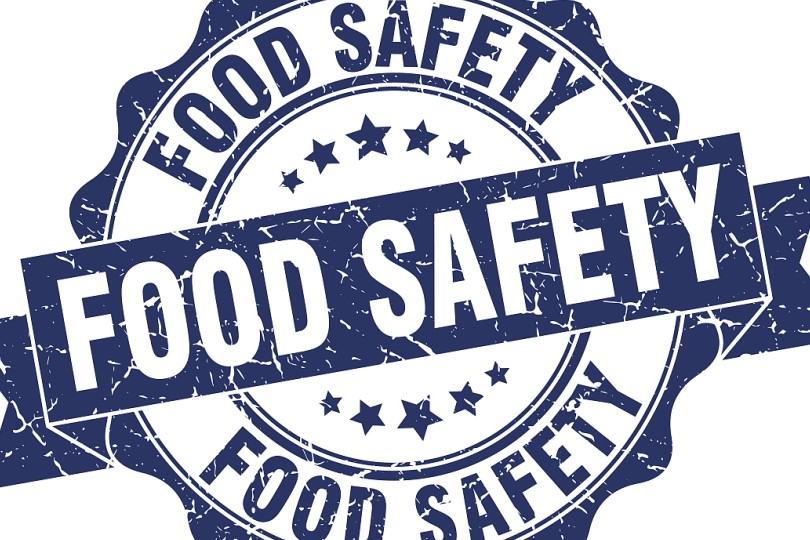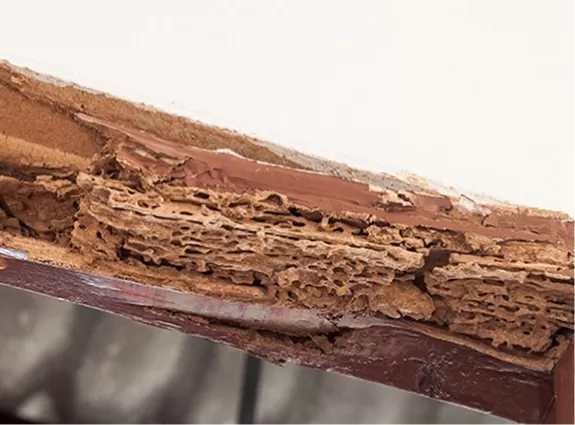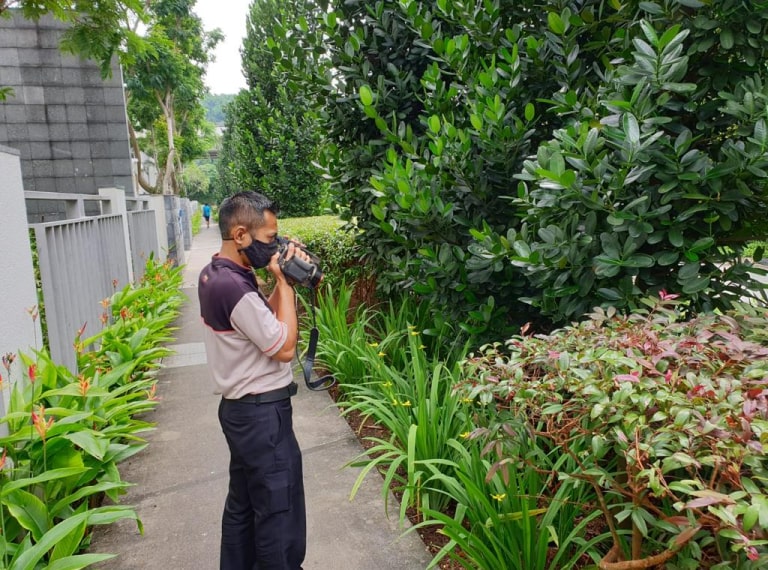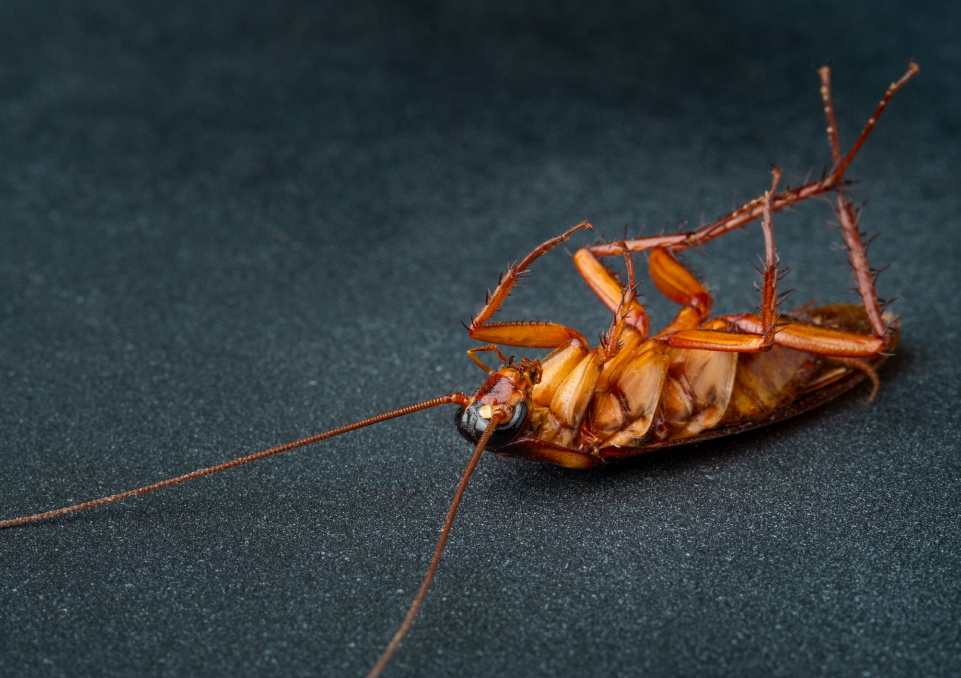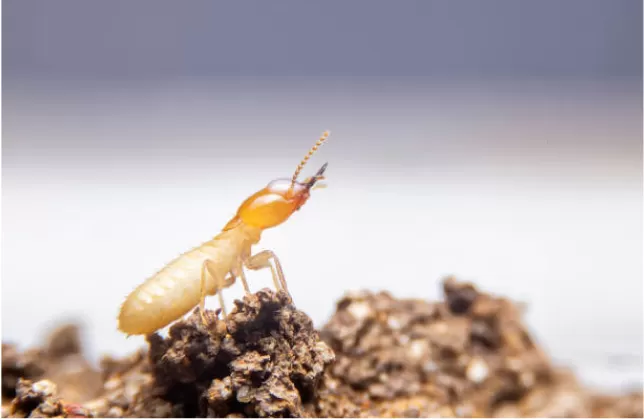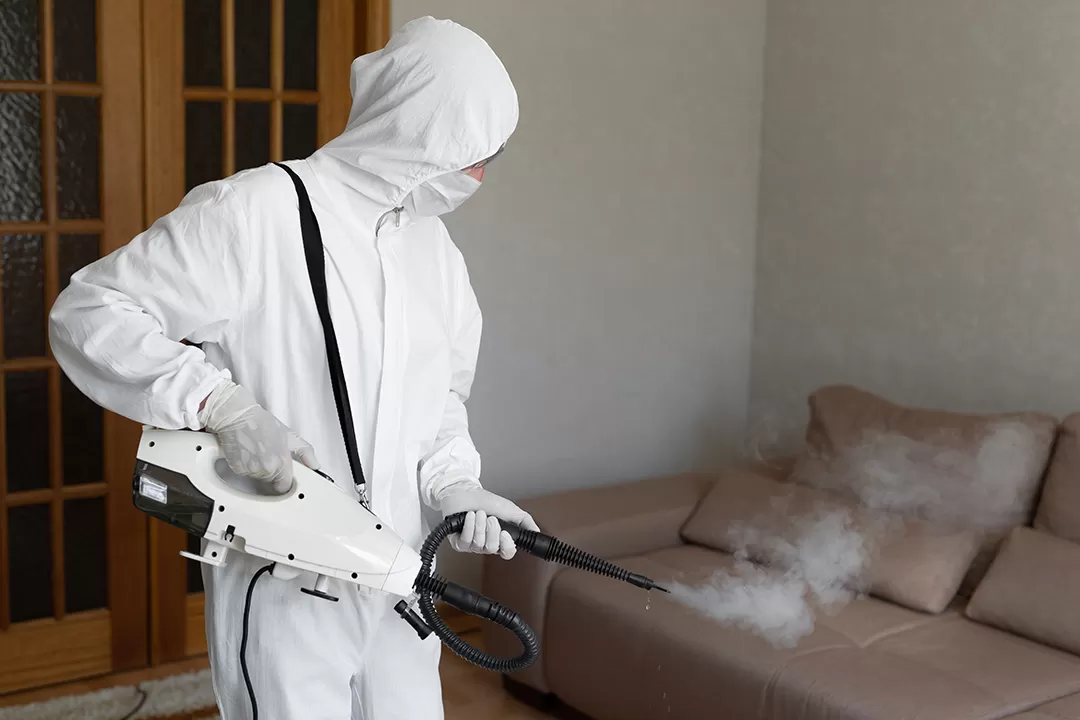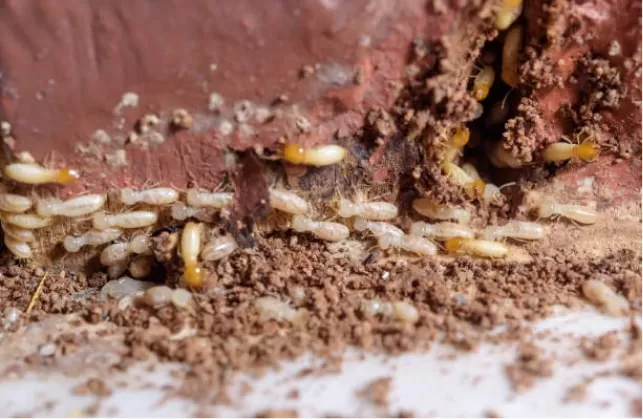Ensuring food safety is a paramount concern in Singapore, where the vibrant food industry significantly contributes to the economy. Pests represent a serious threat to food safety, as they can contaminate products, damage packaging, and even spread diseases. It is important to understand the various ways pests can affect food production facilities and the critical role that effective pest control plays in this context. By leveraging Aardwolf Pestkare’s expertise, you can safeguard your operations, ensure compliance with regulations, and protect your reputation in the industry.
Key Takeaways:
- Pests can contaminate food products, leading to potential health hazards and cause food poisoning for consumers.
- Pests can cause damage to food packaging and storage areas, resulting in financial losses for food production facilities.
- Proper pest control measures are crucial to maintaining food safety regulations and avoiding reputational damage for food production facilities.
Pests Can Contaminate Food Products
Pests present a serious threat to food safety by contaminating food products, which can lead to foodborne illnesses, causing foodborne disease that impact public health. These pests can infest a range of food supplies, including raw meat, fresh fruits and vegetables, poultry, and packaged food items, ultimately creating an unsafe food environment for both consumers and food businesses.
The presence of pests, such as rodents and insects, can result in food contamination, posing significant health risks and contributing to the spread of foodborne diseases and chemical contamination.
Pests Can Damage Food Packaging and Storage Areas
Pests can inflict considerable damage to food packaging and storage areas, ultimately compromising the integrity of food products and posing potential food safety risks.
A variety of pests, including rodents like mice and rats, as well as insects such as cockroaches and ants, are known to infiltrate food storage environments. These unwelcome visitors not only chew through packaging materials, leading to spills and contamination, but they can also carry harmful bacteria that further taint food. For instance, just one rodent has the potential to contaminate a significant number of snack packages by simply nesting nearby.
To mitigate these risks, it is essential to implement effective pest management strategies. This includes:
- Conducting regular inspections of storage areas to ensure food is safe.
- Implementing proper sanitation practices to eliminate food waste, addressing food safety issues.
- Utilizing traps and deterrents to capture and control pest populations, thus reducing the burden of foodborne diseases.
By remaining vigilant and proactive, businesses can greatly reduce the impact of pests, ensuring the safety and quality of their food products.
Pests Can Spread Diseases and Bacteria
Pests are well-known carriers of diseases and bacteria, capable of contaminating food and posing serious health risks to consumers. This makes pest control an essential component of food safety management.
When considering pests, it is important to be aware of various types, such as rodents, cockroaches, and flies, all of which are infamous for transmitting foodborne pathogens. For example, rodents can carry salmonella and hantavirus, while cockroaches can spread allergens and germs that may lead to gastrointestinal problems. Flies pose a particular challenge as they collect bacteria from decaying matter and subsequently land on food, facilitating the spread of disease. The public health implications can be significant, potentially resulting in illness outbreaks and a loss of consumer trust.
To mitigate these risks, it is crucial to implement stringent sanitation practices. Regular inspections can help identify potential infestations early on. Here are several effective strategies:
- Maintaining a clean environment and ensuring that all food surfaces are properly sanitized.
- Sealing entry points to prevent pests from accessing facilities and causing food safety risks.
- Storing food in airtight containers to deter pest activity.
- Implementing an ongoing pest management program that involves professionals.
By prioritizing these preventive measures, businesses can greatly reduce the risk of pests spreading diseases, ultimately protecting public health.
Pests Can Cause Structural Damage to Food Production Facilities
The presence of pests in food production facilities can result in significant structural damage, disrupting operations and putting food safety and compliance with health regulations at risk.
When pests invade these environments, they can lead to a range of serious problems. For example, rodents are well-known for gnawing through walls, which can compromise the structural integrity of buildings. This type of damage can also create opportunities for other pests to enter, resulting in a troubling cycle of infestations.
Insects like termites can further threaten the foundation or framing of storage areas, causing issues such as:
- Leaks that may spoil stored goods
- Expensive repairs that divert resources away from productivity
By effectively managing pest populations, facilities can protect their investments, improve food safety systems, and uphold the food safety standards that are essential for consumer health. Creating a secure environment is crucial for maintaining trust and ensuring compliance with the regulations that govern food production.
Pests Can Lead to Loss of Reputation and Customers
The presence of pests can severely undermine the reputation of food businesses, resulting in a significant loss of customers and diminished trust in food safety practices.
Numerous instances where restaurants or food production facilities have encountered pest issues clearly illustrate this concern. For example, a well-known restaurant chain faced considerable backlash when customers spotted rodents during peak hours, leading to a surge of negative reviews online. The repercussions extended beyond the immediate loss of patrons; long-term effects on brand loyalty and customer retention soon became apparent. Financial analysts indicate that such reputational damage can result in a sales decline of up to 30% during the recovery phase.
These incidents create a ripple effect—customers are more inclined to share their negative experiences online, further compounding the damage. However, the implementation of effective pest management strategies can help mitigate these risks and preserve customer trust. A comprehensive approach not only protects the establishment but also reinforces a commitment to food safety.
In the long run, maintaining a solid reputation fosters customer loyalty, ensuring that businesses can thrive even in the face of occasional setbacks.
Regulations and Inspections Require Proper Pest Control Measures
Food establishments must adhere to strict regulations and undergo regular inspections, which necessitate the implementation of effective pest control measures. This is essential not only for ensuring food safety but also for maintaining compliance with health standards.
Aardwolf Pestkare’s Expertise in Pest Management
Aardwolf Pestkare distinguishes itself in the realm of pest management by providing expert solutions specifically designed to address the unique challenges that food businesses encounter in maintaining food safety.
With extensive experience gained over the years, this company approaches pest control with a thorough understanding of industry standards and the specific needs of its clients. By employing certified technicians who are knowledgeable about the latest pest management strategies, they implement integrated pest management (IPM) techniques that are both effective and environmentally responsible. This approach minimizes disruptions to business operations while ensuring compliance with strict food safety regulations.
Each pest control solution is carefully crafted to protect products, improve sanitation, and offer ongoing support. This commitment sets a high standard for enabling businesses to operate free from pest-related concerns.
Ultimately, Aardwolf Pestkare’s dedication to excellence enables food establishments to achieve a pest-free environment, which is vital for both safety and success.
Other Pest Control Solutions Offered by Aardwolf Pestkare
Plus its core pest management services, Aardwolf Pestkare provides a range of customized pest control solutions specifically designed for food establishments, prioritizing food safety.
These solutions adopt a comprehensive approach that features integrated pest management. This proactive strategy combines prevention, monitoring, and control measures tailored to the unique environments of food establishments. By implementing ongoing monitoring systems, Aardwolf Pestkare helps these establishments detect pest issues before they escalate, enabling timely interventions.
Furthermore, Aardwolf Pestkare offers educational resources specifically geared toward food handlers, improving food safety practices. This enables staff with the knowledge they need to recognize potential pest threats and uphold hygiene standards. Such a holistic strategy not only mitigates pest-related risks but also cultivates a culture of food safety awareness among employees.
- Customized pest control plans
- Continuous monitoring systems
- Training resources for staff
- Emphasis on prevention and education
By incorporating these services, food establishments can not only protect their reputation but also ensure compliance with food safety regulations and international food safety standards, ultimately benefiting both customers and the overall operation.
Why Choose Aardwolf Pestkare for Your Pest Control Needs?
Choosing Aardwolf Pestkare for your pest control needs means selecting a partner committed to food safety, expert pest management practices, and a strong focus on customer satisfaction. Their approach incorporates requirements for food safety and handling food safely.
With a solid track record in the industry, Aardwolf Pestkare effectively addresses pest issues while actively listening to their clients’ concerns. By emphasizing proactive pest management strategies, they assist businesses in mitigating potential food safety risks. Previous customers highly recommend their services, often praising their attention to detail and professionalism.
Their offerings include:
- Comprehensive inspections to identify vulnerabilities
- Tailored solutions to meet specific business needs
- Ongoing support to ensure compliance with regulations
With Aardwolf Pestkare, businesses can feel assured in their pest management efforts, knowing they are supported by a company dedicated to maintaining a pest-free environment.
What Are the Common Pests Found in Food Production Facilities?
Common pests found in food production facilities include rodents, cockroaches, flies, and stored product pests, all of which present significant threats to food safety and hygiene. These intruders not only compromise the integrity of food products but also create hazardous conditions that can jeopardize public health. Therefore, effective pest management is essential for maintaining compliance with health regulations and ensuring consumer safety.
For example, rodents are particularly concerning due to their constant gnawing and nesting habits, which can contaminate food supplies and spread diseases such as hantavirus and salmonella. Cockroaches, renowned for their rapid reproductive capabilities, can quickly infest a facility, leaving behind allergens and pathogens that may lead to severe illness. Flies are notorious for transmitting bacteria from waste to food, while stored product pests, such as pantry moths and beetles, can spoil grain products and packaged foods.
To mitigate these risks, consider the following strategies:
- Rodents: Secure food storage areas and conduct regular inspections to prevent infestations.
- Cockroaches: Maintain high levels of cleanliness and seal any potential entry points to deter these resilient pests.
- Flies: Utilize traps and ensure proper waste disposal to minimize their attraction to the facility.
- Stored product pests: Regularly rotate stock and carefully inspect shipments to reduce risks.
By taking a proactive approach and implementing these strategies, food production facilities can effectively protect themselves against these unwelcome visitors.
How Can Aardwolf Pestkare Help Prevent Pest Infestations?
Aardwolf Pestkare takes a comprehensive approach to preventing pest infestations, employing advanced pest management techniques specifically designed for the unique needs of food establishments.
This multifaceted strategy not only addresses immediate concerns but also focuses on building long-term resilience against pests. A key element of this plan is the regular inspections conducted by pest management professionals, which help identify vulnerabilities within the premises. Continuous monitoring is equally essential, allowing for the early detection of any signs of pest activity before they develop into more significant issues.
Training employees on safe food handling practices is crucial, ensuring that every staff member understands their role in maintaining a pest-free environment. Additionally, implementing strict sanitation protocols can significantly reduce potential attractants for pests.
Ultimately, by adopting a proactive approach to pest management, food facilities can greatly enhance safety and hygiene, creating a healthier experience for both employees and customers.
What Are the Benefits of Regular Pest Control Services for Food Safety?
Regular pest control services offer a range of benefits that are crucial for food safety. These advantages include reducing pest populations, improving food hygiene, and ensuring compliance with health regulations.
Consistently implementing these services not only protects food businesses but also plays a vital role in creating a safer food environment. By effectively managing pest issues, food establishments can significantly reduce the risks associated with foodborne illnesses, which are often linked to contamination by vermin. This proactive approach enhances the overall hygiene standards within the establishment, ensuring that products remain safe for consumption. Additionally, regular pest management helps comply with stringent health regulations, thus preventing costly fines and potential shutdowns.
Some key benefits include:
- Encouraging a clean and safe dining experience
- Minimizing contaminations that could harm customers
- Promoting a positive reputation in the food industry
- Supporting long-term business sustainability
Ultimately, investing in reliable pest control services is a prudent choice for any food business that seeks to prioritize customer health and achieve operational success.
How Can Aardwolf Pestkare’s Services Help Maintain Compliance with Food Safety Regulations?
Aardwolf Pestkare offers pest management services specifically designed to assist food establishments in maintaining compliance with food safety regulations by effectively addressing potential pest-related risks.
Their approach aligns with the stringent requirements established by local health authorities, ensuring that each step taken not only mitigates infestations but also adheres to best hygiene practices. Documentation plays a vital role in this process, as it provides a clear record of pest control activities and monitoring efforts, which can be invaluable during inspections.
Regular assessments are conducted, enabling businesses to:
- Promptly identify any emerging pest threats.
- Document treatments and preventative measures taken.
- Ensure compliance with both state and local regulations.
This proactive strategy not only creates a safe environment for patrons but also equips establishments with the confidence to pass inspections, thereby enhancing their reputation within the food service industry.
What Sets Aardwolf Pestkare Apart from Other Pest Control Companies in Singapore?
Aardwolf Pestkare sets itself apart from other pest control companies in Singapore through its unwavering commitment to customer satisfaction, expert knowledge, and tailored pest management solutions.
This commitment is clearly reflected in their personalized plans that address the specific needs of each property, as well as in the ongoing support they provide throughout the treatment process. Customers are afforded thorough consultations where their concerns are listened to carefully, and strategies are developed based on their unique situations.
The company prioritizes food safety, ensuring that its methods adhere to the highest hygiene standards. Numerous satisfied clients have shared testimonials that emphasize the effective solutions provided and the peace of mind gained from maintaining a pest-free environment.
Here are some key aspects of Aardwolf Pestkare’s approach:
- Customized pest control plans designed for every unique situation.
- Continuous support and follow-up services that foster trust and reliability.
- Commitment to sustainable practices that protect both health and the environment.
By focusing on these principles, Aardwolf Pestkare effectively tackles pest management challenges while prioritizing customer safety and satisfaction, addressing food safety and ensuring compliance with food standards.
Frequently Asked Questions
Why is pest control critical to food safety in Singapore and essential for food security?
Pest control is critical to food safety in Singapore because pests can contaminate food with harmful bacteria, pathogens, and parasites. This can lead to foodborne illnesses, prevent foodborne illness, and pose a serious health risk to consumers.
How does pest control ensure food safety in Singapore, and support the safety of the food system?
Pest control helps prevent and eliminate pests that can potentially contaminate food. By implementing proper pest control measures, food establishments can maintain a clean and hygienic environment, ensuring the safety of the food, and prevent pests from accessing and contaminating food.
What are the common pests that threaten food safety in Singapore, and what are the food hazards?
Some of the common pests that threaten food safety in Singapore include rodents, cockroaches, flies, ants, and stored product insects. These pests are attracted to food sources and can easily contaminate food if not controlled, posing significant food hazards.
How does Aardwolf Pestkare ensure food safety in Singapore and contribute to safe and nutritious food?
Aardwolf Pestkare offers comprehensive pest control services tailored to the unique needs of food establishments. They use safe and effective methods to control and eliminate pests, ensuring a pest-free and hygienic environment for food preparation and storage, thus contributing to safe and nutritious food.
Can pests cause damage to food establishments in addition to food safety concerns and the food chain?
Yes, pests can also cause damage to food establishments by chewing through packaging, equipment, and even structural materials. This can result in costly repairs and disruptions to business operations, affecting the food chain.
How can I prevent pests from affecting food safety in my food establishment and ensure proper storage of food?
To prevent pests from affecting food safety, it is important to maintain proper sanitation and hygiene practices, such as regular cleaning and proper food storage, aligning with the five keys to safer food. It is also crucial to work with a professional pest control company, like Aardwolf Pestkare, to implement preventive measures and address any existing pest issues, ensuring food safety education.

